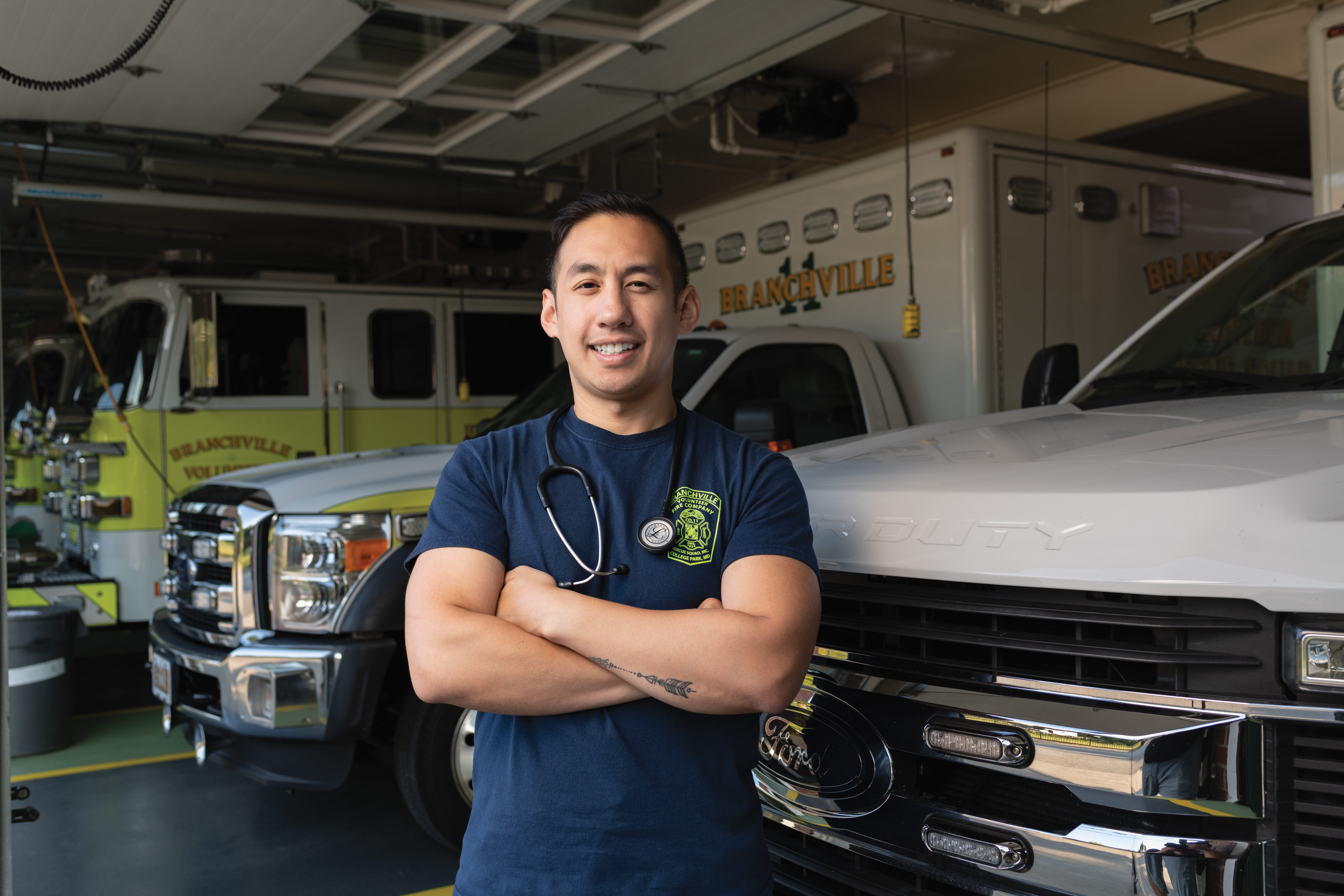
During the first spring of the pandemic, David Toledo was locked down alone, pacing around his living room and watching the news.
“The case numbers were climbing, there was a horrible accident in the area with a lot of injured, and all the other headlines,” remembered Toledo, the director of administrative services and finance for the Department of Human Development and Quantitative Methodology. “I thought, ‘The world has enough accountants right now … I can’t just sit by and watch all these horrible things happen in the world.”
Instead of stockpiling toilet paper and binging on “Tiger King,” Toledo—an accountant by trade with an MBA and a knack for finance—turned his restless energy into something constructive.
“I thought, something has to change and the thing I can change the quickest is myself: to make myself better while I slowly try to make the world a better place,” Toledo said, and becoming an emergency medical technician (EMT) looked like the best fit for him.
The deadline for the Fall 2020 class sign-ups was imminent, so he rushed to file his registration paperwork. By December 2020, he had joined the Branchville Volunteer Fire Co. He passed his certification exam in February 2021, and ever since, he has been working ambulance calls on a night shift or two a week with the Branchville company.
“It’s very humbling to work with patients, to go into their lives and see what they’re going through, whether they’re in cars wrapped around a tree, on a sidewalk, in their homes or apartments, or homeless,” he said.
Not that Toledo didn’t have enough to do already. He’s worked full-time at the college for the last year, after nine years at the university in other capacities; he’s chair of the College of Education’s Senate; and he’s co-chair of College Park City Council’s education advisory committee supervising grants, book drives and scholarships.
Toledo’s captain at the Branchville company, Carly Rosenfeld, said Toledo’s presence on the ambulance has been an asset.
“I believe EMT Toledo's character is shown simply through his decision to join the fire department during the peak of the pandemic,” Rosenfeld said. “Throughout his training he has been upbeat, motivated, and incredibly easy to work with -- which are all skills impossible to train. His calm and comforting demeanor, even as a trainee, relieves the tension that a patient is experiencing during their emergency.”
Toledo said he learned hard work from his family, which emigrated from the Philippines. His mother worked as an accountant for Doctor’s Community Hospital, his father worked as a bank clerk.
“I know how hard it was for my parents to come here, to get us set up and to get us educated,” he said. “I really want to pay it forward to families who have similar struggles.”
The EMT work, he said, “fills my soul.” During a recent emergency call, Toledo found himself caring for a family’s 18-month-old child while his fellow EMTs worked on a parent. On the ride to the hospital, Toledo amused the toddler and fed him baby crackers.
“You never want to see a child that young in distress,” he said.
Working as an EMT has taught him unexpected lessons, like staying calm for the sake of patients.
“At the university, everything is so urgent all the time, and I definitely want to be as efficient as I can,” he said. “When you’re working with patients, you don’t want to lose your composure, then your patients will think things are worse than they are.”
He remembers what it’s like to suffer in a medical situation. Toledo was 24 when he got a call that his 63-year-old father was having a heart attack. Hospital staff flew his dad by helicopter to a cardiac unit, but by the next morning, Toledo’s father was gone.
“The loss has definitely shaped me, but as much as I miss my father, I’ve grown a lot since then,” Toledo said.
On a recent ambulance call, EMTs were working on a patient having a heart attack. Toledo managed to lower their blood pressure and heart rate, get them to the hospital and see them recover, helping to spare another family the pain his went through.
“To see it come full circle like that, it’s pretty meaningful to me,” Toledo said.